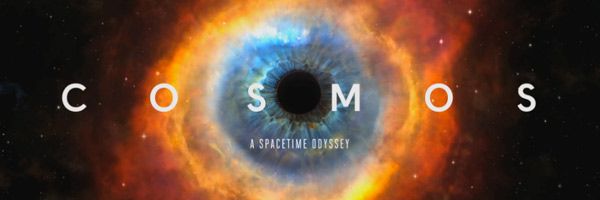A revival of Carl Sagan's seminal work Cosmos: A Personal Voyage, which was a massive hit on PBS in the 1980s, Cosmos: A Spacetime Odyssey goes on a visually masterful trek through space at the hands of popular astrophysicist Neil deGrasse Tyson, and his "ship of imagination." The 13-episode series, which will be running on a myriad of Fox networks, is the first time a documentary has aired in primetime in a very long time, thanks to a big push from executive producer Seth MacFarlane. Hit the jump for whether it deserves its high-profile slot.
One of the most focused-upon aspects of Cosmos is not its enthusiastic, friendly and well-respected (not to mention uber smart) host Neil DeGrasse Tyson, but MacFarlane. MacFarlane is a man of extremes, much of which was on display when he hosted the Oscars. He can be brutally funny, then willfully obtuse (take, as exhibit A and B, Family Guy versus Dads). His involvement with Cosmos suddenly made the project's viability a toss up -- which MacFarlane were we going to get?
A MacFarlane, it turns out, who knows when to let the experts take the wheel. Cosmos is a glossy and mind-bogglingly in-depth production, with snappy editing and a staid script that Tyson delivers with measured aplomb. The first episode lays out a firm scientific foundation, zooms around the possibilities of everything in the known universe, and then takes it piece by piece. This inaugural journey may be slow-going for those who already know their way around the solar system, as our place in it is explained by a "cosmic address" (Earth, solar system, Milky Way, local group, Virgo supercluster, observable universe), but interest will be held by the sharp and mesmerizing graphics. It's also a testament to the series' desire to be accessible to everyone -- Cosmos is clearly a family affair.
Like Sagan before him, Tyson is a good ambassador of the universal, because he is able to explain even the most mentally tortuous concepts in ways that are able to be understood on a basic level (the series is also co-written, directed and executive produced by Carl Sagan's wife, Ann Druyan). Tyson also brings things down to a personal level, speaking at length at the close of the first episode about a personal encounter with Sagan in his youth that helped cement his desire to become a scientist, which also pays homage to Sagan and the original series.
Mixing live action, animation and CGI, Cosmos' first episode generally outlines the known universe by using illustrative tools like a "cosmic calendar," to explain the passage of such large swaths of time. Visions of rogue planets seen only by infrared, and massive planet-sized hurricanes are all explored with amazing clarity, on par with other nature series of recent years. Nature doesn't really come into the picture until the second episode, though, which contracts in as far as it initially expanded: DNA and molecules make the focus small, but vast in their own way.
However, despite mention being given to Dominican friar and astronomer Girodano Bruno, who was burned at the stake for his ideas of an infinite universe, there is really no place for faith in Cosmos. If Tyson wasn't specific enough about it in the first episode, he's essentially explicit about it in the second (although there are many references to a random and chance nature of existence throughout). In the world of Cosmos, science and faith are irreconcilable, and the church -- particularly the Roman Catholic church -- is painted in a particularly damning light. How that might play out in terms of reception (and, surely, think pieces and Twitter wars), will be a big part of what will probably define perception of Cosmos as the weeks wear on. It's an either/or battle that doesn't need to be waged on the show. (And there probably are arguments to be made about its politics, which MacFarlane has spoken about).
But ultimately, the series is one that should be looked at as a celebration of the current state of man's discoveries about the natural world and, also, the cosmos which contain us. Its intended value seems one of education as well as entertainment, and Tyson does a good job of combining both with his thoughtful, but passionate countenance. The most lasting effect it might have on a new generation though, and a reminder to the older ones, is that scientifically solid but emotionally mystical concept that "we are all made up of star stuff." As Sagan inspired Tyson, so too will Tyson inspire many others. Cosmos is a good place to start.
Cosmos premieres Sunday, March 9th at 9 p.m. ET on Fox, and will replay on additional Fox networks on Monday.

